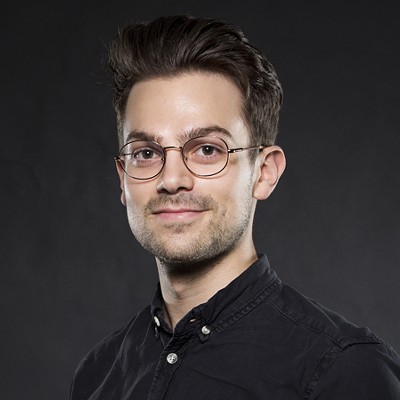Lax policies and poor oversight may have led to errors at the Broward crime lab that could cause scores of cases to be reopened or thrown out, according to a new deposition by the crime lab's second in command.
Randy Hilliard’s career with the Broward Sheriff’s Office ended on March 28, 2014, after he was asked to retire. He had been working in the department’s crime lab, where drugs seized from defendants are weighed and tested. As the unit’s “technical analyst,” he was second in the lab’s chain of command. He also oversaw drug analyst Kelli
Two years ago, discrepancies arose regarding the amount of drugs that were seized as evidence in cases McDonald had worked on. She had been involved with more than 5,800 separate drug cases since 2006. In 2012, 0.4 grams of cocaine was unaccounted for in the lab, and she was deemed responsible. The Broward Public Defender’s Office then hired an independent analyst to reweigh drugs in a separate cocaine case and found that the weight of that cocaine had mysteriously shrunk by about 5 grams since McDonald initially weighed it. She was then asked to reweigh a random sampling of drugs from 20 other cases — 19 matched, but one case had also shrunk, this one by about 12 grams.
McDonald was reassigned while both BSO’s internal affairs department and the State Attorney’s Office investigated. Those probes are still open, but McDonald resigned November 19. If she is formally charged with misconduct, thousands of criminal cases could be dropped or reopened as defendants allege that the evidence against them cannot be trusted in court.
In her resignation letter, McDonald wrote, “Any allegations, past or present, regarding the crime lab or myself, are not in any part due to my personal actions. I have worked all cases within the policies and procedures of the BSO Crime Lab.”
In a sworn deposition Hilliard gave this past January 26 (related to a 2010 oxycodone trafficking case), he said McDonald’s issues were related to sloppiness rather than outright misconduct. If an employee wanted to take drugs from the lab, he pointed out, that person could have done so before recording a drug’s initial weight and likely never be caught.
Still, his testimony revealed what the Broward Public Defender's Office says are flaws in the management of the lab.
Hilliard said repeatedly that the lab was so underfunded and overworked that employees were breaking down from the stress. Hilliard said the backlog had gotten so bad that he wanted to start triaging the most important cases but was rebuffed by management.
“We were forced to continue to analyze everything from the State Attorney’s Office, without the ability — both manpower and resources — to handle that job,” Hilliard said. Lab analysts, he said, were encouraged to process as many cases per day as possible.
“Do you think members of the crime lab would start to break down, physically, mentally, and emotionally under that case?” Gordon Weekes, Broward’s chief assistant public defender, then asked.
“They did,” Hilliard said. Yet no mistakes were “ever caught.”
Weekes asked if there were enough fail-safes in place to catch errors. Hilliard said chemical issues — like false positives in testing — could be caught via paperwork but ceded that weight discrepancies would likely not be caught unless an analyst decided for some reason to reweigh drugs. There was also no camera system monitoring the lab.
Weekes told New Times the lab’s policies concerned him. “They were operating under a trust system and assuming these chemists were doing all these things correctly,” he said. “Now, we have a situation where that trust system has broken down.”
Hilliard said McDonald was, for medical reasons, allowed to work unsupervised in the lab on weekends — but he believed discrepancies in her cases were simply due to human error. Cocaine, he said, can sometimes lose or gain weight when sitting in a storage locker. And in the case where five grams went missing, Hilliard speculated that McDonald had mistakenly included the “weigh boat” used when placing drugs onto a scale — which, he said, weighs about five grams — in the initial weight.
Either way, Weekes says, McDonald’s cases cannot be trusted in court. There are 30 open cases in which McDonald’s evidence is still being relied upon. Weekes is asking that those cases be dismissed.
Victor Weedn, chair of George Washington University’s Department of Forensic Sciences, says crime labs across the nation are chronically underfunded and overworked. Labs, he said, are forced to place a massive amount of trust in individual analysts. At the end of the day, though, he said, there is simply no way to avoid placing human beings next to large quantities of drugs.
The number of labs in the nation that have installed camera surveillance systems is “pretty hit or miss,” he says, and when labs receive funding increases, managers typically hire new personnel rather than make structural upgrades.
If many cases need to be reweighed,
When asked about the crime lab’s policies, Ron Ishoy, spokesman for the State Attorney’s
Hilliard, when reached by phone, said he stood by the policies that were in place
"Their idea of 'lack of checks and balances' was our idea of 'every analyst being a professional











